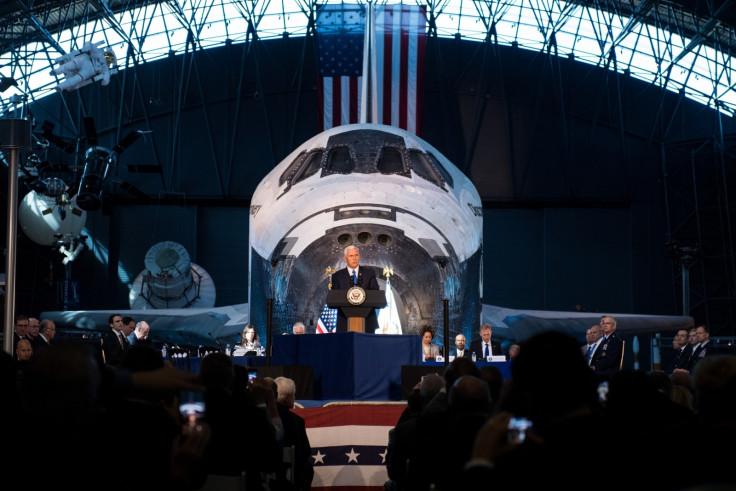Nasa to shift focus from Mars to the Moon, will send humans to the lunar surface
This comes as a change of pace in plans for Nasa that had shifted its focus to Mars during the Obama administration.

Vice President Mike Pence, who spoke at the inauguration of the National Space Council (NSC), said that the Trump administration is directing Nasa to restart efforts to put Americans on the Moon.
Pence spoke about creating a more permanent presence on the Moon at a newly-formed executive group that will guide the US space agenda, reports the Verge. He said, "we will return NASA astronauts to the Moon — not only to leave behind footprints and flags, but to build the foundation, we need to send Americans to Mars and beyond."
Acting Administrator of the space agency, Robert Lightfoot said, "Nasa has been directed to develop a plan for an innovative and sustainable program of exploration... returning humans to the Moon for long-term exploration and utilization, followed by human missions to Mars and other destinations."
Pence had hinted at missions to the Moon when he spoke at the Kennedy Space Center in Florida in July. Earlier this year, it was reported that Trump wanted Nasa to put astronauts on risky Moon missions aboard an untested rocket, a request that Nasa rejected.
The plan to go back to the Moon, however, was first put forward by former president George W Bush. The proposal was later side-stepped by the Obama administration, which concentrated on Mars instead.
Going back to the Moon would be a fundamental change in strategy for the space agency, reports the Verge as Nasa had no intentions of landing on the Moon. For the past several years, Nasa has been busy working on a new type of spacecraft that is designed to carry humans to Mars and then on to deep space with the Orion and Space Launch systems.
The space agency is also collaborating with Russia in building a near-Moon space station called the Deep Space Gateway that will work as a pit stop before heading out to Mars. While the report does mention that these crafts can be used to go to the moon, it is not part of the original plan, so it is still unclear how this will affect Nasa's long term strategy.
Pence also focussed on private partnerships that can help get the US back to the Moon. "American companies are on the cutting edge of space technology, and they're developing new rockets, spaceships, and satellites that will take us further into space faster than ever before," he said.
This comes at a time when SpaceX, headed by Elon Musk, already has a time table in place for a lunar station and has not only devised a way to get to Mars, but is also building a spaceship that is set to launch in 2022 called the BFR. Musk has said that the colonisation of Mars will begin by the year 2024.
© Copyright IBTimes 2025. All rights reserved.





















